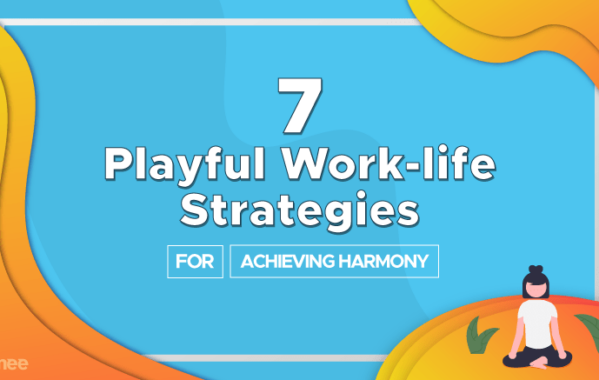Tips for small businesses from Brandwatch

Brandwatch is a social media monitoring tool that allows brands to mine data from social platforms. We recently spoke to Joel Windels, Marketing Manager at the company, about the development of social media and best practise for start-ups.
Brandwatch were once a start up, similar to Qmee. At which point did growth start to accelerate, was it several factors or just one?
What we’ve built is a complex, sophisticated piece of technology. We started building the current tool in around 2005, but it wasn’t for well over a year that we started signing up clients. We’ve grown by around 100% every year since 2009 to have over 700 clients and 150 staff worldwide in 2013.
If you’re building something or selling a service that is genuinely good, and one you believe in, a snowball effect will occur – or at least it did for us. Once people start buying into your product and when people have heard of the cool things you’re doing, growth just … happens. We found that keeping our users happy has made the whole thing a lot easier – the word of mouth and excitement around what you’re doing starts to fuel the engine even more.
Why did you Brandwatch choose to do something in the social listening space?
The company can trace its history to working with local authorities to help organise and search through data. Though ambitions remained modest for a few years, once sites like Myspace, Facebook and later Twitter emerged, we realised this was a bold new beginning for how people were about to communicate – not only with each other, but with organisations.
Leaning on the talents that we’d developed on previous projects, it was decided that the business should pivot, in order to discover what value lay in social data.
Brandwatch launched in 2005, before Facebook & Twitter were even around. How did you adapt when they both hit the big time, because you managed to accelerate your growth practically in line with theirs and become a real insight leader ahead of everyone else. How did you manage to make sure that you had the right tools in place for a largely unknown platform?
As you’ve stated, social media was in its infancy when we began. It was difficult to distinguish between the rising stars and the fading giants. One thing we recognised early on, however, was that the change of pace was rapid. In order to position ourselves so that we’d be best equipped to adapt to such developments, we embarked upon the extremely challenging (and expensive) task of harvesting and storing the data ourselves, Google style.
Many tools at the time, and most of them even now, relied on other data providers to secure which sites they were able to listen to. We identified this as a potential hazard and limitation. Being in control of our own data would afford us the freedom to decide where to best invest our efforts, but also to react to changes in the market – such as Twitter’s launch – in an agile and prompt manner.
We continue to closely monitor the social web in order to ensure our finger remains on the pulse, and so that any changes in the way people use the internet to communicate are reflected in the product we offer as quickly as possible.
Do you feel like Brandwatch have made the ultimate platform or do you think there’s still room for future development?
Let’s hope we never feel like that! The scope of things we’d like to achieve is practically unlimited, so the real challenge is in determining which things we won’t develop. It might strike many as amazing that we employ well over 50 developers – we believe this is more than anyone else – who are led by a large, strong product team.
This is so that we’re enriching our tool at a far faster pace than anyone else. Many of our competitors also offer a wide range of services, such as Salesforce Marketing Cloud, which we are unable to complete with in breadth. The advantage of this however, is that we get to be the quickest, most granular and best-in-class platform for the things we do offer, meaning they can’t compete with us for depth.
Listening to what clients actually want helps us inform our product development, so there is always a never-ending list of desirable features to create – as clients want an awful lot!
At the beginning, how did you spread the word about Brandwatch? What were the key things that worked for you?
When you’re small, it’s hard just to get noticed. We benefitted from starting early in an emerging sector. Part of our mission early on was simply to raise the profile of social media monitoring in general, and to convince people of its value. The game has changed since then, but in those early days we found that using social data usually grabbed people’s attention.
Businesses were still uncertain about the efficacy of social data. By providing examples of its value – even if that just meant listening to tweets to predict the winner of the X Factor – we were able to get prospects, writers, journalists and other relevant targets talking about Brandwatch. Talking about yourself, or what you sell, doesn’t interest anyone. Creating stories, uncovering insights and producing engaging statistics were all ways in which we were able to get people talking about us, usually in an organic and natural way too.
If you could give other small business one piece of advice, what would it be?
What you sell is incredibly important! Rather than trying to be everywhere and offering everything you think people might want, identifying and focusing on what you’re best at will allow you to emerge above your competitors. So don’t have a Facebook page if you can’t afford the resource to manage it. Don’t develop that new feature just because a particular client wants it. Don’t offer 24hr support simply because a competitor does.
Plugging the gaps and masking the blemishes in a product or service you know isn’t necessarily the best available is only ever going to get you so far. If you’ve got a killer offering behind the activities you engage in, you’ve got a far greater chance of success – in pitching, sales, marketing, customer service and so on.
Word of mouth is incredibly powerful, and if something is able to sell itself and market itself, you’re essentially increasing the resource you have behind your business. Get known for something you’re great at, and avoid being yet another also-ran.




